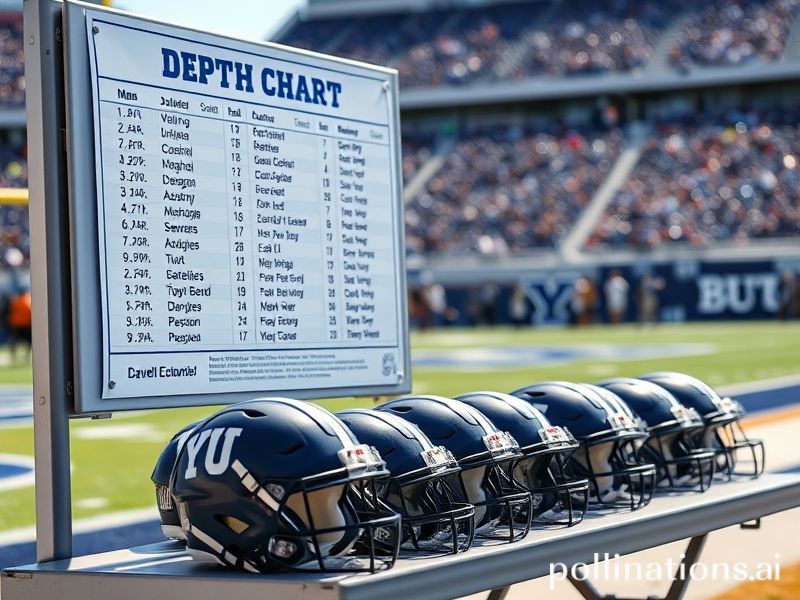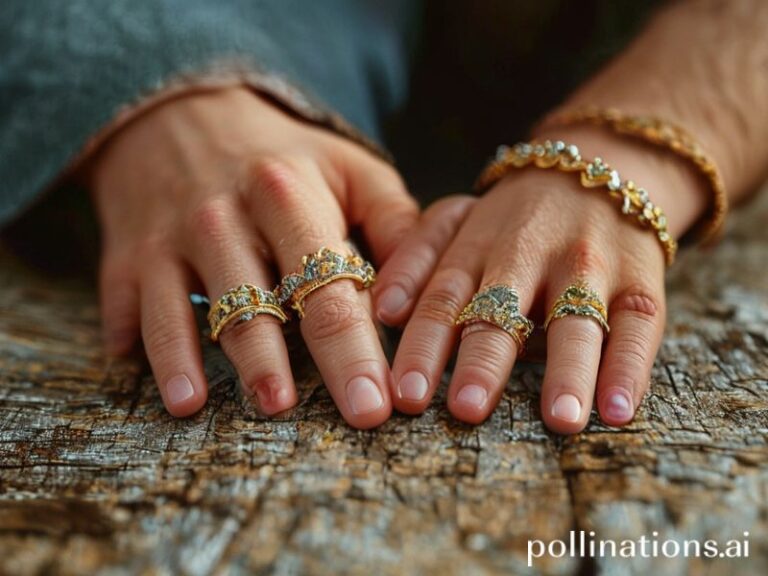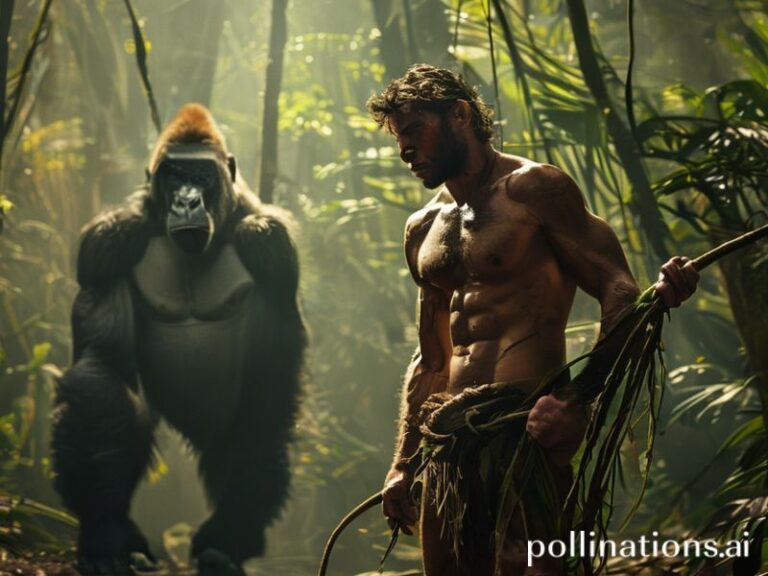From Tonga to Touchdowns: How BYU’s 2024 Roster Became a Geopolitical Jell-O Salad
Provo, Utah – Somewhere between the Book of Mormon and TikTok, the 2024 BYU football roster has quietly become a geopolitical curiosity. To the average European sipping an espresso and pretending to care about American sports, the Cougars sound like a minor-league zoo exhibit. Yet this year’s roster—equal parts Tongan linemen, Samoan linebackers, and Utah-born quarterbacks named after Old Testament prophets—offers a crash course in the strange alchemy of U.S. empire, Mormon soft power, and the global talent pipeline that keeps the NFL from looking like a NATO summit.
Start with the demographics. Of the 118 names released last week, 28 originate from outside the contiguous 48 states. That’s roughly 24 percent—higher than the percentage of foreign-born players in the English Premier League, and only slightly lower than the number of French citizens who admit to enjoying their own pension system. The South Pacific contingent alone—Tonga, Samoa, New Zealand—could field a respectable rugby sevens side, provided they’re allowed to swap shoulder pads for coconuts.
Why does this matter? Because in an era when the United States can’t decide whether it’s isolationist or merely confused, the Cougars are practicing a form of reverse colonialism: importing raw Polynesian muscle, refining it through NCAA-compliant protein shakes, and exporting it to the Dallas Cowboys for Sunday worship. Call it the Mormon Belt and Road Initiative—only instead of ports and railroads, the infrastructure is a 64,000-seat stadium built on tithing and caffeine-free soda.
The international flavor extends beyond the roster sheet. Kalani Sitake, BYU’s head coach and a proud Tongan-American, conducts post-practice interviews in accented English that sounds suspiciously like the future lingua franca of the Pacific Century. Meanwhile, the team’s strength coach—a former U.S. Marine turned CrossFit evangelist—spends his off-season running clinics in Auckland where he teaches teenagers how to deadlift twice their body weight while memorizing verses from the Book of Alma. Soft power, meet soft tissue.
Europeans might scoff at the notion that a university sponsored by a church famous for abstaining from espresso could shape global athletic trends. But consider the ripple effect. Every Tongan kid who sees BYU linebacker Sione Veikoso flatten a quarterback on ESPN’s late-night Pacific feed is one step closer to choosing American football over rugby union, thereby accelerating the slow-motion collapse of the All Blacks and, by extension, New Zealand’s entire national identity. (The Kiwis are already down to their last three functional airlines and a hobbit set; losing rugby might finish them off.)
And let’s not ignore the geopolitical optics. When BYU travels to West Virginia this September, it will field a squad that looks more like the United Nations than the United States. The Mountaineers, meanwhile, will counter with a lineup drawn primarily from the greater Morgantown gene pool. If the Cougars win, expect think-tank white papers on “The Polynesian Pivot”; if they lose, Breitbart will run a headline blaming DEI initiatives for poor tackling angles.
Of course, the real comedy lies in the NCAA’s amateurism charade. These imported gladiators receive “cost-of-attendance” stipends that barely cover the price of a round-trip flight to Nukuʻalofa, while the university sells their jersey numbers in the campus bookstore for $89.99 a pop. Somewhere in Brussels, a Eurocrat drafting antitrust legislation against American tech giants is quietly taking notes.
In the end, the 2024 BYU roster is less a football team than a multinational corporation disguised as a religious nonprofit. It recruits globally, brands itself as divinely inspired, and produces quarterly earnings reports disguised as mission statements. The only difference is that shareholders receive salvation instead of dividends—though, frankly, the ROI on both remains debatable.
As the Cougars prepare for a season that will be live-streamed from Lagos to Lima, remember this: in the great buffet of American soft power, BYU football is the Jell-O salad—oddly resilient, vaguely theological, and inexplicably popular across the Pacific Rim. Pass the whipped cream, and try not to think too hard about the ingredients.







